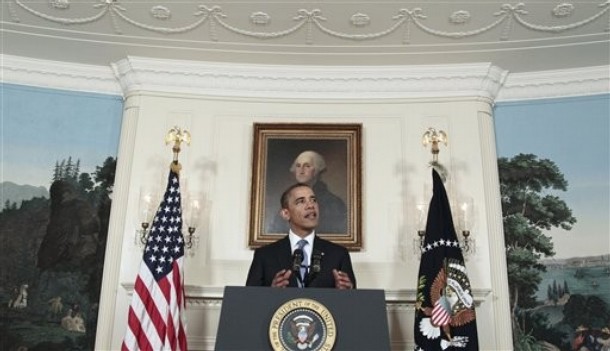With the emergence of former Massachusetts Governor Mitt Romney as the presumptive Republican nominee, the presidential campaign should enter a serious phase given the gravitas of the issues. Yet the sorry state of American politics means that the chances of a meaningful debate over these difficult and indeed potentially intractable issues confronting the nation aren’t good.
That said, what should form an agenda for both candidates if there were to be a candid exchange of views and presentation of specific policies and plans to address these issues?
First and most importantly, Romney and US President Barack Obama need to explain to the public how each plans to lead a government that is badly broken.
Whoever wins in November will face a politically and bitterly divided Congress. And, even if one party wins control of both ends of Pennsylvania Avenue, a super majority of 60 votes in the US Senate required to guarantee passage of legislation won’t be achieved, perpetuating gridlock and stalemate on Capitol Hill.
Second, neither party has produced real–as opposed to superficial, propagandistic and rhetorical–solutions to the major issues that will determine the nation’s future. We know what these issues are: At home, tax and entitlement reform beg for action. The nation’s infrastructure is in desperate need of repair. And our educational system is failing, underscored by the startling fact that the United States spends more on its prisons than on teaching its youth.
Third, if one possessed a magic wand, where could it be most effectively waved abroad? Three perennials, if remediated, would transform international politics for the better. Perhaps “Missions: Impossible,” resolution of the Arab-Israeli-Palestinian; Indo-Pakistani; and China-Taiwan crises would, as Henry Kissinger famously wrote five and a half decades ago, truly lead to “a world restored.”
So, Mr. Obama and Mr. Romney, please tell us how you would respond to these presidential challenges.
Regarding a philosophy of government, the Obama administration has relied on a combination of executive orders and rewriting regulations as a surrogate for legislation. It also has tried to bypass Congress in part to blame Republicans for failure to govern.
Romney has been silent on his governing philosophy beyond reducing the size and spending habits of government and its regulations; relying on markets for growth and job creation; and has made no comment on how a Romney administration will work — or not — with Congress.
Sadly, and even with the prospect of several presidential debates this fall, this is one challenge that is unlikely to be met. Yet, no answers to any question may be more important for the public than this one.
For all the talk of tax and entitlement reform, specific plans are missing in action. Obama goes only as far as calling for the “Buffett Rule” in which the top “1 percent” of wage earners would pay a tax rate equal to his or her secretary. This is preposterous. If the president wanted real tax reform, then the issue would be adjusting capital gains rates that are now 15 percent and establishing a progressive or sliding scale.
Romney argues for the budget plan put forward by Rep. Paul Ryan (R-Wis.). Unfortunately, the devil is in the detail and the Ryan plan is naked when it comes to specifics.
And neither candidate has even broached how infrastructure and education will be addressed–preferably through infrastructure and education “banks” that would generate fees to pay for the programs. This type of thinking is crucial if the nation’s ills are to be corrected.
In foreign policy, the three most crucial and intractable issues concerning the Arab-Israeli, Indo-Pakistani and China-Taiwan conflicts have proven impervious to resolution. Ending or eliminating even one of these ongoing conflicts would be as powerful and momentous as the dissolution of the Soviet Union.
Obama tried, some would say superficially, to engage in the Middle East. Meanwhile, Romney promises that, if elected, he will brand China as a “currency manipulator,” a foolhardy step designed to provoke an unhappy reaction on the part of a nation that holds more than $1 trillion of US debt.
Under Obama, US relations with Pakistan have deteriorated and show signs of only getting worse. Romney has been silent on South Asia and probably hasn’t had the time to focus on a region that will become even more unstable as the drawdown in Afghanistan begins. And what happens in Iran — a country that Romney promises to prevent from obtaining nuclear weapons by using military force — is far from predictable and could be the fuse for igniting a major war.
This week’s Economist newspaper featured on its cover what it called “the hardball campaign.” Serious and objective debate on the vital issues is essential. Instead, negative campaigning, sound bites and talking points will be poor substitutes masquerading as real presidential challenges.
Harlan Ullman is senior advisor at the Atlantic Council, and chairman of the Killowen Group that advises leaders of government and business. This article was syndicated by UPI.
Image: obama_budget_0.jpg
